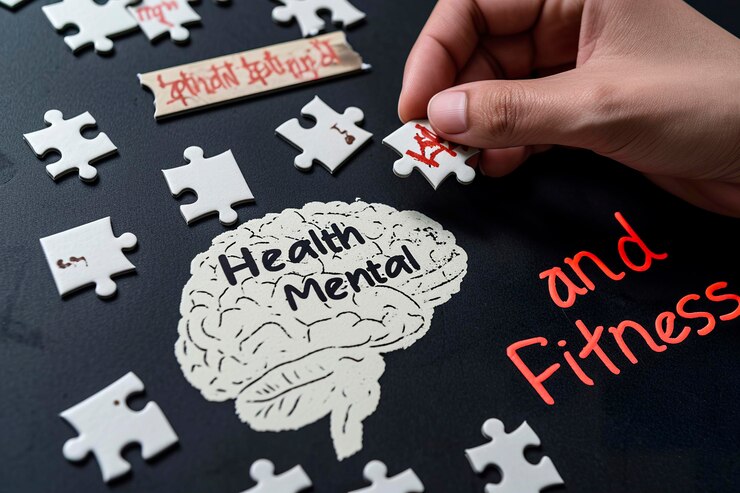10 Psychological Insights Every Parent Should Know to Support Their Child Development
Parenting is a journey filled with joy, challenges, and constant learning. Understanding the psychological aspects of child development can significantly enhance your ability to nurture and support your child. Here, we delve into some fascinating psychological facts that every parent should know, helping you to better understand your child’s behavior, emotions, and needs. By integrating this knowledge into your parenting approach, you can foster a healthier, more supportive environment for your child to thrive.
1. The Power of Early Experiences
The first few years of a child’s life are critical for brain development. During this period, the brain forms neural connections at an astonishing rate, influenced by interactions with caregivers and the environment. Positive experiences, such as responsive caregiving, play, and reading, can significantly impact a child’s cognitive and emotional development.
Key Takeaway: Engage in nurturing activities and provide a stimulating environment for your child from an early age to support optimal brain development.
2. Attachment Styles and Their Impact
Attachment theory, developed by John Bowlby, emphasizes the importance of the bond between a child and their primary caregiver. Secure attachment, where children feel safe and understood, leads to better emotional regulation, social skills, and resilience. In contrast, insecure attachment can result in anxiety, difficulty in relationships, and emotional challenges.
Key Takeaway: Foster a secure attachment by being responsive, consistent, and emotionally available to your child.

3. The Role of Play in Development
Play is not just fun for children; it is a vital aspect of their development. Through play, children explore the world, develop cognitive skills, enhance social interactions, and express emotions. Different types of play, such as imaginative, physical, and social play, contribute to various developmental domains.
Key Takeaway: Encourage diverse forms of play to support your child’s cognitive, social, and emotional growth.
4. The Impact of Praise and Encouragement
The way parents praise and encourage their children can significantly influence their mindset and motivation. Carol Dweck’s research on growth mindset highlights that praising effort rather than inherent ability fosters resilience and a willingness to tackle challenges. Children who believe their abilities can be developed through effort are more likely to persist in the face of difficulties.
Key Takeaway: Focus on praising your child’s effort, strategies, and perseverance to cultivate a growth mindset.
5. The Importance of Emotional Intelligence
Emotional intelligence (EI) refers to the ability to recognize, understand, and manage one’s emotions, as well as the emotions of others. High EI is associated with better mental health, relationships, and academic performance. Teaching children to identify and express their emotions, as well as understand others’ emotions, is crucial for their emotional and social development.
Key Takeaway: Encourage open discussions about feelings and model emotional intelligence in your interactions with your child.
6. The Effects of Screen Time
In today’s digital age, screen time is a significant concern for many parents. Excessive screen time, particularly involving passive consumption such as watching videos, can negatively impact a child’s attention span, sleep, and physical health. However, educational content and interactive media can have positive effects when used in moderation and with parental guidance.
Key Takeaway: Monitor and limit screen time, ensuring a balance with physical activity, play, and face-to-face interactions.
7. The Influence of Peer Relationships
As children grow, peer relationships become increasingly important. Positive peer interactions contribute to social skills, self-esteem, and emotional well-being. Conversely, negative peer experiences, such as bullying, can have lasting effects on mental health.
Key Takeaway: Encourage healthy peer relationships by facilitating playdates, teaching social skills, and addressing any concerns about bullying or peer pressure.
8. The Role of Routine and Structure
Children thrive on routine and structure, which provide a sense of security and predictability. Consistent routines help children understand expectations and develop self-discipline. This is particularly important in managing transitions and reducing anxiety.
Key Takeaway: Establish and maintain consistent routines for meals, bedtime, and daily activities to create a stable environment for your child.
9. The Impact of Parental Stress
Children are highly sensitive to their parents’ emotional states. Parental stress, anxiety, and depression can affect a child’s emotional and behavioral health. It’s crucial for parents to manage their own stress and seek support when needed.
Key Takeaway: Prioritize self-care and seek professional help if you are experiencing significant stress or mental health challenges.
10. The Significance of Modeling Behavior
Children learn by observing their parents’ behavior. Modeling positive behaviors, such as empathy, kindness, and problem-solving, teaches children how to interact with others and handle challenges.
Key Takeaway: Be mindful of your actions and interactions, as your behavior serves as a powerful example for your child.
Practical Tips for Implementing These Insights
- Create a Nurturing Environment: Ensure your home environment is safe, loving, and stimulating. Engage in activities that promote bonding and learning, such as reading together, playing, and exploring new experiences.
- Be Present and Responsive: Spend quality time with your child, actively listening and responding to their needs. This helps build a secure attachment and fosters a sense of trust and safety.
- Encourage Exploration and Play: Provide opportunities for your child to explore their interests and engage in different types of play. This not only supports cognitive and social development but also allows your child to discover their passions.
- Foster Emotional Intelligence: Use everyday situations to discuss emotions and teach your child to express their feelings appropriately. Encourage empathy by discussing how others might feel in different situations.
- Limit and Guide Screen Time: Set clear boundaries for screen time and ensure that it does not replace physical activity, play, or family interactions. Choose educational and interactive content and co-view whenever possible.
- Promote Positive Peer Interactions: Help your child develop social skills by teaching them to share, take turns, and resolve conflicts peacefully. Support their friendships and intervene if you notice any negative peer influences.
- Maintain Consistent Routines: Establish daily routines for meals, sleep, and activities. Consistency helps children feel secure and understand expectations, reducing anxiety and behavioral issues.
- Manage Your Stress: Practice self-care and seek support if you are feeling overwhelmed. Your emotional well-being directly impacts your child’s health and happiness.
- Model Positive Behavior: Demonstrate the behaviors you want to see in your child. Show empathy, kindness, and effective problem-solving in your interactions.
- Stay Informed and Seek Support: Stay informed about child development and parenting strategies. Don’t hesitate to seek professional guidance if you have concerns about your child’s development or your own mental health.
Conclusion
Understanding these psychological facts can transform your parenting approach, helping you to support your child’s development more effectively. By creating a nurturing environment, fostering emotional intelligence, and modeling positive behavior, you can help your child build a strong foundation for lifelong well-being. Remember, parenting is a journey of growth and learning for both you and your child. Embrace this journey with curiosity, compassion, and a commitment to continuous improvement.
For more insights on child development and parenting strategies, or to schedule a consultation with a licensed psychologist, please visit our website or contact us directly. We are here to support you and your family in navigating the complexities of psychological well-being and achieving a fulfilling, balanced life.

